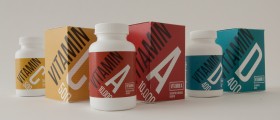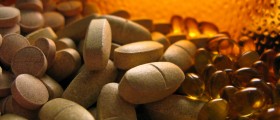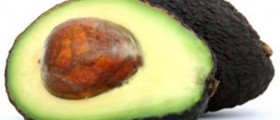
Vitamins are organic compounds found in the food and required by the human organism to maintain health and overall wellbeing. The normal daily tension and insufficient vitamins supply, may put the body under the great amount of pressure. Lack of vitamins may make one feel lethargic, exhausted, and depressed or cause frequent mood swings. The lack of other vitamins may actually worsen the health or contribute to the excessive weight.
The best vitamins for women
A healthy and well balanced diet is important for every human being. However, some of the vitamins are especially important to women at certain ages. The woman’s body goes through a series of changes in a process of development from child to a mature post-menstruating women. Each of the phases in a woman’s development is characterized by different set of features while bearing a risk of different health conditions. This article will try to explain the importance of particular vitamins and set the guidelines for optimal use.
Vitamin A
This vitamin is essential for proper development of tissues: skin, bone, eye, teeth. The best sources of vitamin A are dairy products, eggs, carrots, leafy vegetables, oranges, lime and pineapple. The recommended daily intake for women is 5.000 IU.
Vitamin B
The B vitamins are a spectrum of water-soluble vitamins that play significant roles in cell metabolism. This essential vitamin provides the body with the energy.
Vitamin B1, also known as thiamine, is responsible for optimum functioning of the, metabolism, immune system and brain functions.
Vitamin B2, also known as riboflavin, regulates the energy exchange. Lack of this vitamin can make a women feel lethargic and worn-out.
Vitamin B3, also known as niacin, may boost the energy levels and helps to control high cholesterol.
Vitamin B5, also known as pantothenic acid, optimizes the body’s immune response.
Vitamin B6, also known as pyridoxine, protects the arteries and stabilizes hormonal levels in the body. Sufficient intake of this vitamin may help to prevent heart attacks. Recommended daily dosage of this important nutrient is 2mg per day.
Vitamin B9, also known as folic acid, plays a significant role in production of the red blood cells. Pregnant women need more of this vitamin as it prevents birth defects in the first trimester of pregnancy. Normally, women need about 400mcg of this vitamin daily, while pregnant women need 600mcg.
Vitamin B12, also known as Cyanocobalamin, is vital in metabolic processes as it helps in the process of absorbing the nutrients from food and producing the energy. Approximately 2.4mg of this vitamin daily may help to fight against depression and preserve optimum nerve and brain functions.
Vitamin C
This vitamin is important for every cell in the body. It regulates the development and protection of the cell membranes. The best sources of this vitamin are vegetables, oranges, lime, tomato, onions, broccoli, peppers and cabbage. Recommended daily dose of vitamin C for healthy women should be 90 mg.
Vitamin D
This vitamin is important for bone tissue. It is present and well-absorbed from milk, eggs, salmon and other sea-products. The vitamin is especially significant for women as it may prevent the osteoporosis. It also lessens the risk of colon cancer and rheumatoid arthritis.
Vitamin E
This vitamin is essential for hair growth and tissue recovery. It is a potent antioxidant and protects the eyes, skin and liver. Recommended daily dosage for women is 400 – 800 IU.
Vitamin K
This vitamin plays a significant role in the coagulation of blood and thus prevents the heart diseases in women. The recommended daily dosage of 90 mcg per day may be obtained from dairy products, soybean and green leafy vegetables.

















Your thoughts on this
Loading...